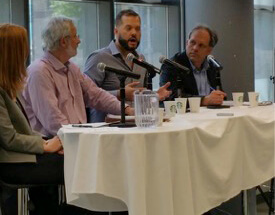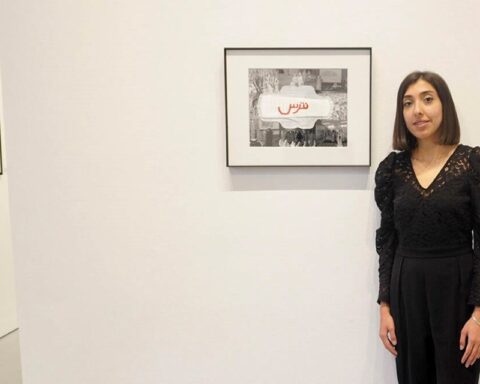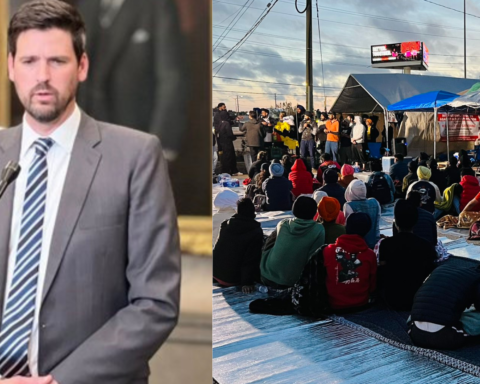The government is restricting access to public documents and next to nothing is being done about it.
This was the recurring theme during the “Flying Blind” conference hosted by The Canadian Journalists for Free Expression (CJFE) at Ryerson University on Friday.
Earlier this week, the CJFE put out its Review of Free Expression in Canada report, which features articles, statistics and analyses from experts in law, journalism, advocacy and academia in order to inform on and evaluate government and institutions for their impact on freedom of expression.
James L. Turk who is a distinguished visiting professor at Ryerson University explained that the issue of government transparency is a matter of protecting our democratic system and that silence only gives officials more power.
“Democracy is dependent on an informed public, but an informed public is potentially detrimental to a government,” he said.
“There is almost an obligation now to give time for a response, which deters journalists from reaching out to political offices. Government communication should now be called government marketing.” – Jennifer Ditchburn, Canadian Press
At the conference, the Information Commissioner of Canada, Suzanne Legault, joined prominent members of the media and other advocates of increased information accessibility for an open discussion regarding their personal experiences with, as well as expert opinions on, the subject.

The list of panellists included Munir Sheikh, former statistician of Canada and current executive fellow at the University of Calgary, Rob Cribb, an investigative journalist for the Toronto Star, Jennifer Ditchburn, senior parliamentary correspondent for the Canadian Press, Laura Tribe, national and digital programs lead for the CJFE, executive director of CJFE, Tom Henheffer and many more.
Introductions highlighting the many achievements of the speakers were followed by individual testimonies detailing how the lack of legal support has allowed the government to hide many of its budgetary spending from the public and has also resulted in a decline in investigative journalism.
The increase in the government’s unwillingness to produce documents has also promptly led to a general mistrust between members of the media and government officials.
“There is almost an obligation now to give time for a response, which deters journalists from reaching out to political offices,” explained Ditchburn. “Government communication should now be called government marketing.”
“You need a public that cares and rises up. Everyone who knows has a responsibility [to raise awareness]. Governments need to know that people care about the issue.” – Laura Tribe, Canadian Journalists for Free Expression
She continued on saying that the government now has its own team of media correspondents that is given more access to political figures.
Raising Awareness
“Why is this a non-issue? I am tired of having these discussions and then going home with no change. As we sit here having this discussion, that person right outside,” said Cribb, pointing at a man walking by the window, “has no idea of what is going on.”
“You need a public that cares and rises up. Everyone who knows has a responsibility [to raise awareness]. Governments need to know that people care about the issue,” added Tribe.
Turk stated that this kind of denial of information access inhibits the job performance of reporters, making a comparison to construction workers. “These are fundamental tools needed for journalism. What if I took the shovels from the workers outside and told them to dig?”
Legal Issues
“This is a total information shut down . . .” said Henheffer. “The government wants to shut down access to information. The problem is weak laws that allow a government to do whatever they want in terms of accessing information.”
Although all of the panellists reiterated that public awareness was the key to increasing the dissemination of information, everyone was shocked when Tribe revealed that of the 102 country that qualified for the 2010 survey of freedom of information laws, Canada ranked just 58th.
This ranking put Canada behind many developing states such as Sierra Leone, Mexico, Azerbaijan, and even Ethiopia, which has been notorious for jailing journalists.
“The federal government states that they are the most transparent in history because they have responded to the most [access to information] requests . . . people need to continue to speak out, if people give up [the fight] there will [only] be [further] erosion . . .” – Suzanne Legault, Information Commissioner of Canada
At another point in the discussion, Brown revealed that while investigating for an article, the threat of a libel case is extremely effective in dissuading the news outlet from publishing a story due to court costs.
As an example he described a situation that he went through with an article he had written on Jian Ghomeshi, who has now been charged with several counts of sexual assault. Although everything that Brown had wrote in the article was factual, the Toronto Star refused to publish the story after being threatened, until Ghomeshi himself made the information public through a Facebook post four months later.
Steps Moving Forward
Peter Jacobsen, a media lawyer, explained that journalists must be trained on how to approach sources that wish to remain anonymous because complete confidentiality can never be promised. He went on to say that if called to testify during a libel case, upon refusal to reveal a source’s identity, a journalist could be charged with contempt of court.
Jacobsen stated that the only way to combat these civil suits, until laws are changed, is for the media to band together so that court costs are kept to a minimal. Henheffer added that forming a media coalition for this exact purpose would definitely be a priority for the CJFE in the future.
The Information Commissioner of Canada, Legault concluded by stating: “The federal government states that they are the most transparent in history because they have responded to the most [access to information] requests . . . people need to continue to speak out, if people give up [the fight] there will [only] be [further] erosion . . . talking to your MP will help. Send e-mails, tweets. Go in person (to your local MP’s office).”
A business enthusiast with a passion for implementing processes that improve the world around me.





